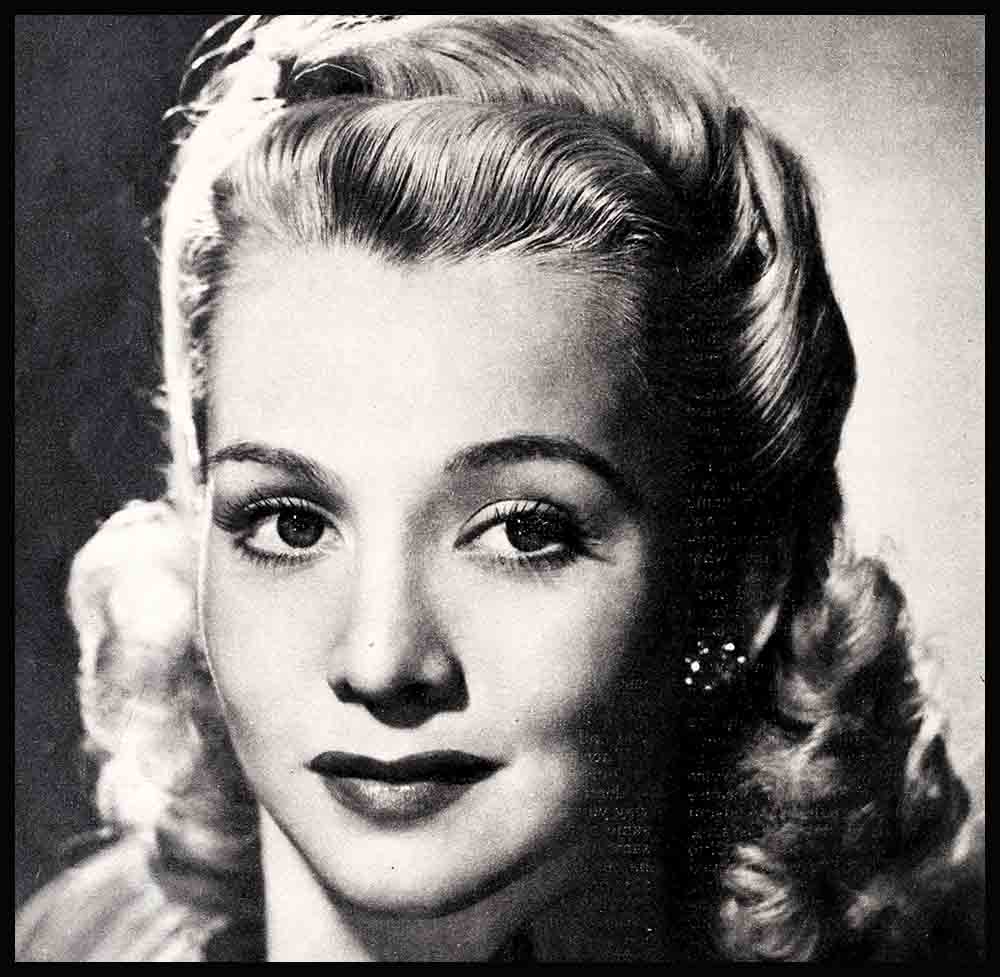
Don’t Marry A Stranger
No woman ever loved a man more than I loved Tommy Wallace. And Tommy loved me, too. all my life, above all the rest, I want to remember that. I want to remember how Tommy and I sat in little English pubs just staring at each other, how hours seemed minutes—time goes so fast when you’re that happy—how we walked across winter fields and had tea at a little inn beside a river.
Three weeks after we met, and in the same moment loved each other, Tommy and I were engaged. Less than two months later we were married. And somehow we felt safer as we walked through London’s blacked-out streets and heard Nazi bombs screaming toward the earth because we had a recognized claim on each other as we held fast to each other’s hands.
AUDIO BOOK
I was lucky to have such a romantic adventure. If only I had accepted it for what it was and not insisted upon turning it into marriage before I knew whether or not it belonged to marriage. For now, not even two years later, Tommy and I are going to be divorced. We both know, through a series of disillusioning experiences, that we do not have what it takes for marriage to each other. We don’t have friendship. And marriage without friendship is like a house without a foundation. It cannot endure.
However, while I am sorry I married Tommy, I am not sorry I loved him. I would be reluctant to have missed those two months during which Tommy and I met and loved. I am a richer woman today because we were together at Sunday service in the rubble of St. Paul’s, because we walked through blacked-out streets singing the Air Corps song, because we danced at the 400 Club feeling as we did, because I lived in a little room in a guest house near Tommy’s base and when he was on duty—since I never knew what his duty would be—waited with trembling heart until he telephoned or came hurrying to me.
All of this is no less precious because it cost Tommy and me dearly in bitter quarrels and disillusionment and bruised egos almost from the minute we turned it into the marriage that it never was meant to be.
It was a marriage which, I believe, we would have discovered was not meant to be had we disciplined ourselves and waited.
As Tommy has said so often in the last year as we tried to salvage our marriage, “It’s no use. We’ll never make a go of it. We’re different, you and I. . . .”
When we fell in love we thought, of course, we were exactly the same—identical! We were convinced, the way you always are, that we had the same attitude toward life, liked the same things and would be forever happy with the same people. Actually, nothing could have been further from the truth.
Reality always is submerged during a romance, I guess. At such delirious times both a man and a woman, almost unknowingly, act a part. Both think and speak and act in a way calculated to accentuate the wonderful things they feel themselves to be in the other’s eyes. However, with sufficient time, some suggestions of an individual’s faults will usually manifest themselves. Consequently, when a man and a woman wait to marry they give themselves some chance of discovering if there is any true congeniality between them, if they really respect each other, if they really like each other—in spite of their faults and sometimes even because of them.
Tommy and I—and the hundreds and hundreds of boys and girls who are flinging themselves into marriage today—gave ourselves no opportunity to make any such discoveries.
I thought I was being very practical and realistic when, before we married, I warned Tommy how difficult it is to be the husband of a screen star. We sat in an ABC shop having tea. I made it very clear that so long as I remained in pictures I must wear attractive clothes, live at the smartest places, see certain people. I suggested—when the war was over and he no longer was a romantic flyer in uniform but a businessman in civvies—that I might, at times, appear to overshadow him. All the time I encouraged him to protest that such things were and always would be insignificant beside his love for me. Had he done anything else I would have been disappointed and surprised. I must be honest. Otherwise there is no point in my writing this at all.
Earlier it had been agreed, you see, that I could not give up my career until Tommy was out of service and established in business, since it was reasonable to suppose this transition would take time and involve a period of little or no income.
Tommy and I had two days together after our wedding. Then I left, with Kay Francis, Mitzi Mayfair and Martha Raye, for Africa. I was on a USO tour, you know. Three weeks later I returned to England and Tommy and I had another week and a half. Both interludes were as exciting and sweet as honeymoons always are when you’re young and madly in love.
More than ever Tommy and I were convinced we had been made for each other.
When I came back to California I wrote Tommy every day, often two and three times a day. I learned how to market and how to cook. I shopped for underwear, shirts and robes for him. I went out with no one but his friends. And all the time I dreamed of the future Tommy and I would build together.
Then Tommy, having completed his overseas duty, cabled me he would be in New York in July. I threw over jobs right and left. Nothing must interfere with my marriage. It didn’t matter that his home-coming was postponed and I waited from July to September for him. I was a wife before I was anything else—and that was exactly how I wanted it.
During our few weeks in New York Tommy and I had, for the most part, a glorious time. However, when he was sent to a restricted island off Texas and I entrained for California I found myself depressed and insecure remembering two or three quarrels. Among other things Tommy hadn’t liked my friends and I hadn’t liked his criticism. Such quarrels, before we were married, would have been nothing. We would have short-circuited the first anger they generated with protestations of greater devotion. But when you are married it is different. It seems sometimes as if a marriage license is also a license to hurt a husband’s or wife’s feelings. Curious, isn’t it? Because before you marry you have far less to protect. But that is the way it is—let’s face it.
In November Tommy was detailed at Mitchel Field. I planned a visit so perfect that the misunderstandings we had had would be forever forgotten.
A first Christmas together is something all the people in love cherish. I made up my mind to have a tree and holly in our hotel windows. I had dozens of little packages for Tommy, among them a beautiful money clip with his favorite picture of me enameled on it.
Just before I left for the train I had a wire from Tommy telling me not to come, as he wouldn’t be in New York for the holidays. He may have thought he would have so little free time that I would be lonely. I never quite found out. However, thinking possibly his plans might change, I thought I might as well go on. I had my studio make reservations at the hotel I usually stop at in New York.
I had a miserable time and I’m afraid Tommy did too. We spent Christmas and New Year’s Eve and New Year’s Day, which also is my birthday, apart. We had quarreled. I stayed with a girl friend in her apartment and checked my hotel regularly to see if Tommy had called. But Tommy, also lonely, had gone with a friend to the country.
I sent my money clip to him by a messenger on Christmas Eve and forgot the silly presents. By return messenger I received his present, a beautiful topaz ring.
Our quarrels began the day I arrived when Tommy, in New York to my surprise, telephoned and came for lunch with me. He wanted me to pack and stay with him at his hotel downtown. He protested he couldn’t afford the hotel where I was stopping, although that is where we had stayed before—without argument.
“It’s part of my job, as you know, to maintain certain appearances,” I protested. “This is one of the things I warned you about—remember? Besides, up here we can come and go as we please. No one will pay any attention to us.”
I am sure there was hurt in my voice. Before we had married Tommy had been able to manage a suite at the Savoy in London, more than once. And surely he knew that as far as I personally was concerned it didn’t matter where I lived if we could be together. I had loved the little room we had shared in the English countryside, laughed at his apologies for it.
“I’ve had enough of being the guy Carole Landis married,” he told me.
I didn’t believe that in these times a motion-picture actress could overshadow a young man who had fought as a pilot overseas and attained a majority in the Air Corps. I said so.
Tommy maintained his room in the midtown hotel and I maintained my reservations uptown. However, I did stay at his hotel; but the personnel there, the switchboard operators, elevator men, waiters and the crowds in the lobby gave us no peace and Tommy agreed it was impossible for us to stay and have any privacy. So he visited at my hotel for a few days. With this wrong basis between us we quarreled more frequently and more bitterly than ever before. Nothing either of us could do was right. We were learning, too late, that we both had faults and personal characteristics which were intolerable to the other. The time to discover such things, of course, is before marriage.
When I returned to California I felt as though my world was falling away. For a year and more I had thought of life only in terms of Tommy and myself loving each other. Any doubt on this score made me feel rootless and insecure.
However, in spite of the destructive effect we had upon each other, I held to my halcyon picture of Tommy and myself in love. I reminded myself how difficult it is for a man to be married to a girl in pictures. I assured myself Tommy wouldn’t take certain aspects of my profession so seriously later on. I relived, over and over, the sweet moments we had known together.
I think Tommy went through pretty much the some process. His letters, like mine, were self-accusing, apologetic for angry words and filled with promises that we would love each other always. Whereupon, we both began to look forward to the next time we could be together.
It came in March when Tommy spent a week’s furlough with me in California. We had a beautiful time and not one angry word passed between us. So there would be no opportunity for criticism of my friends, Tommy and I spent this time alone. Trying to be a perfect wife—and loving it—I cooked dinner every night, except the night we went dancing, alone, at Mocambo. I set myself to be what I thought Tommy wanted me to be.
Only after he left did we realize we had been acting a part the entire time we were together. And in the same moment, with a sickening sense of shock, I knew it might be all right for us to do this for the duration of a furlough but that we couldn’t possibly do it for an entire lifetime.
Perhaps because of this reaction we both were too individual the next time we met. Things didn’t go well. Our letters were not the love letters of old. Instead they asserted what we both felt to be our individual rights. We lived through the old pattern of quarrels and reconciliations. In our letters and telephone conversations we would agree it was hopeless to continue and then agree to try again.
When I left on a USO tour to the South Pacific, Tommy, again at home with me in California, sent me beautiful flowers and a note I always will cherish, for in it he recaptured something of the fine generosity we knew for each other when we first met and fell insanely—there’s no other word for it—in love. Our last quarrel occurred when I came home. When it was over there was no going back, no trying again. Tommy left our apartment and went to his quarters on the field. And when he called on the phone neither of us had the heart to pretend that we had a fighting chance. There was only one thing to to do—call it quits before we hated each other and no longer remembered how beautiful it once had been.
It hasn’t been easy to put this on paper. I often have needed to take courage from the fact that, by being honest about my impulsive war marriage, I might save other girls from making the same mistake.
Life today is not normal. Always uncertain of tomorrow we reach out greedily for the hour in which we live. Especially if a man is in the armed Services. “Hurry! Hurry! Claim every emotion. Take your love where you find it. Tomorrow we may die!” If we don’t think this consciously. we think it subconsciously.
However, most of the time tomorrow comes. And unless we discipline ourselves to stand clear of war emotionalism we doom those tomorrows to being poorer, lonelier and more bitter days than they otherwise might be.
Above all, in these times, take care not to marry a stranger!
THE END
It is a quote. PHOTOPLAY MAGAZINE JANUARY 1945
AUDIO BOOK

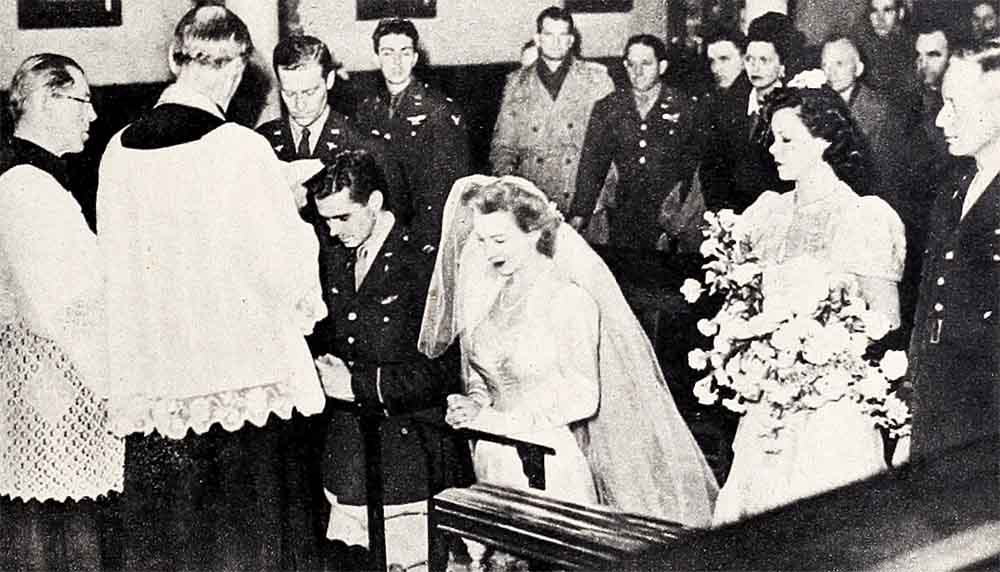
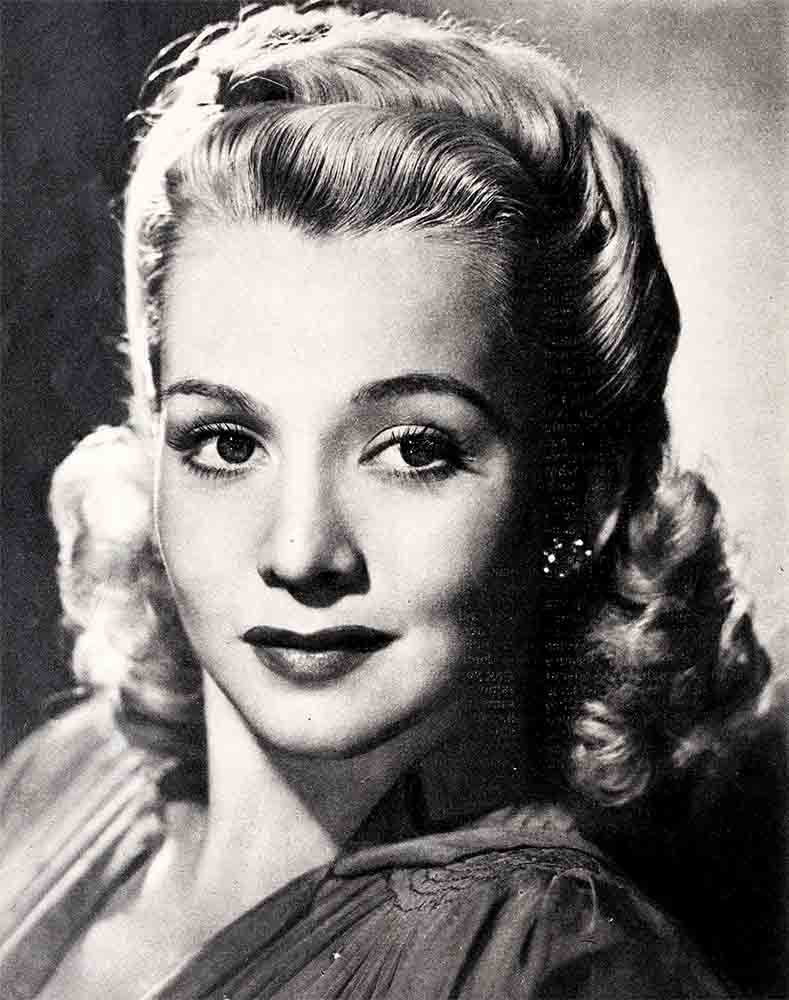

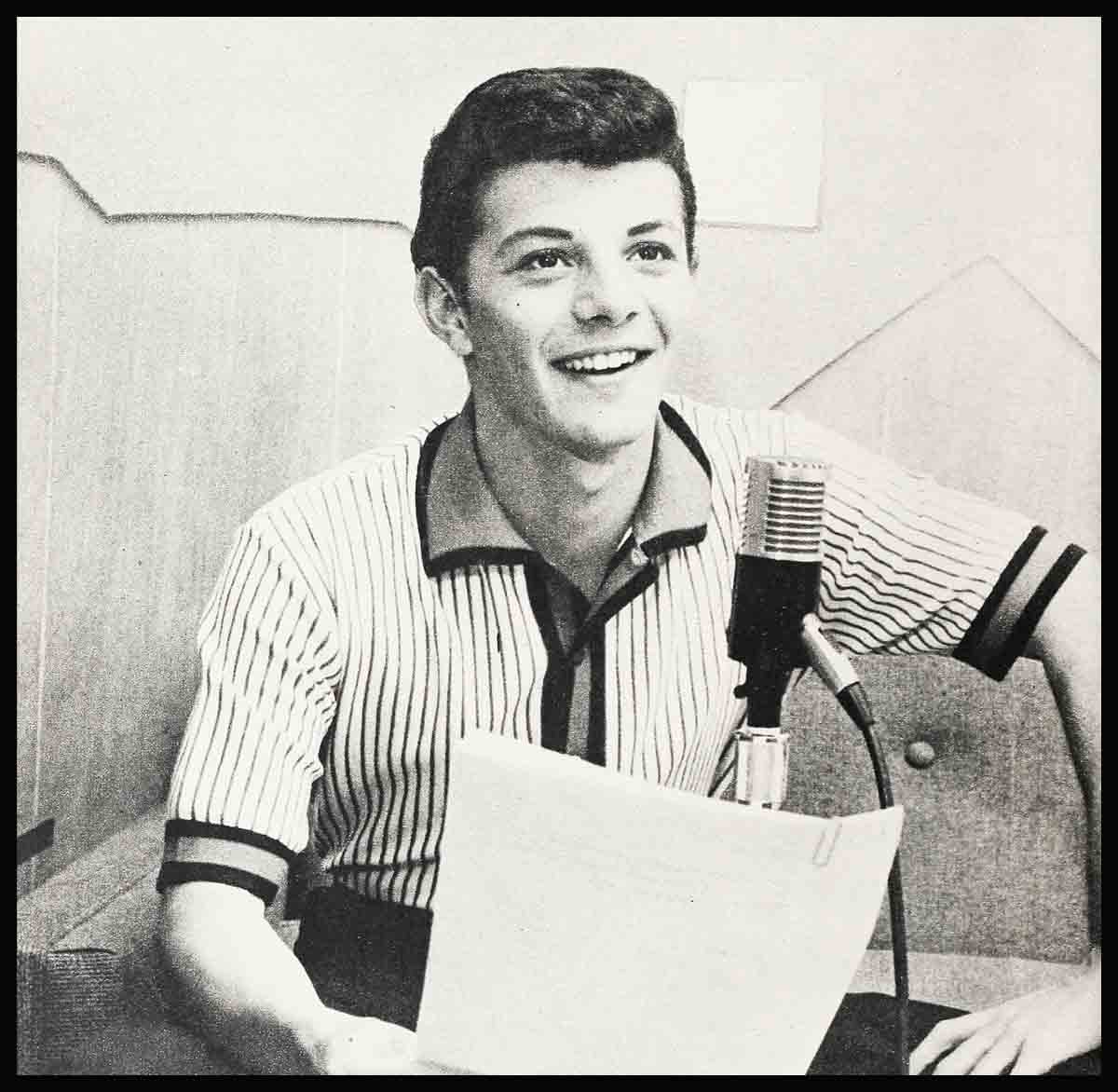
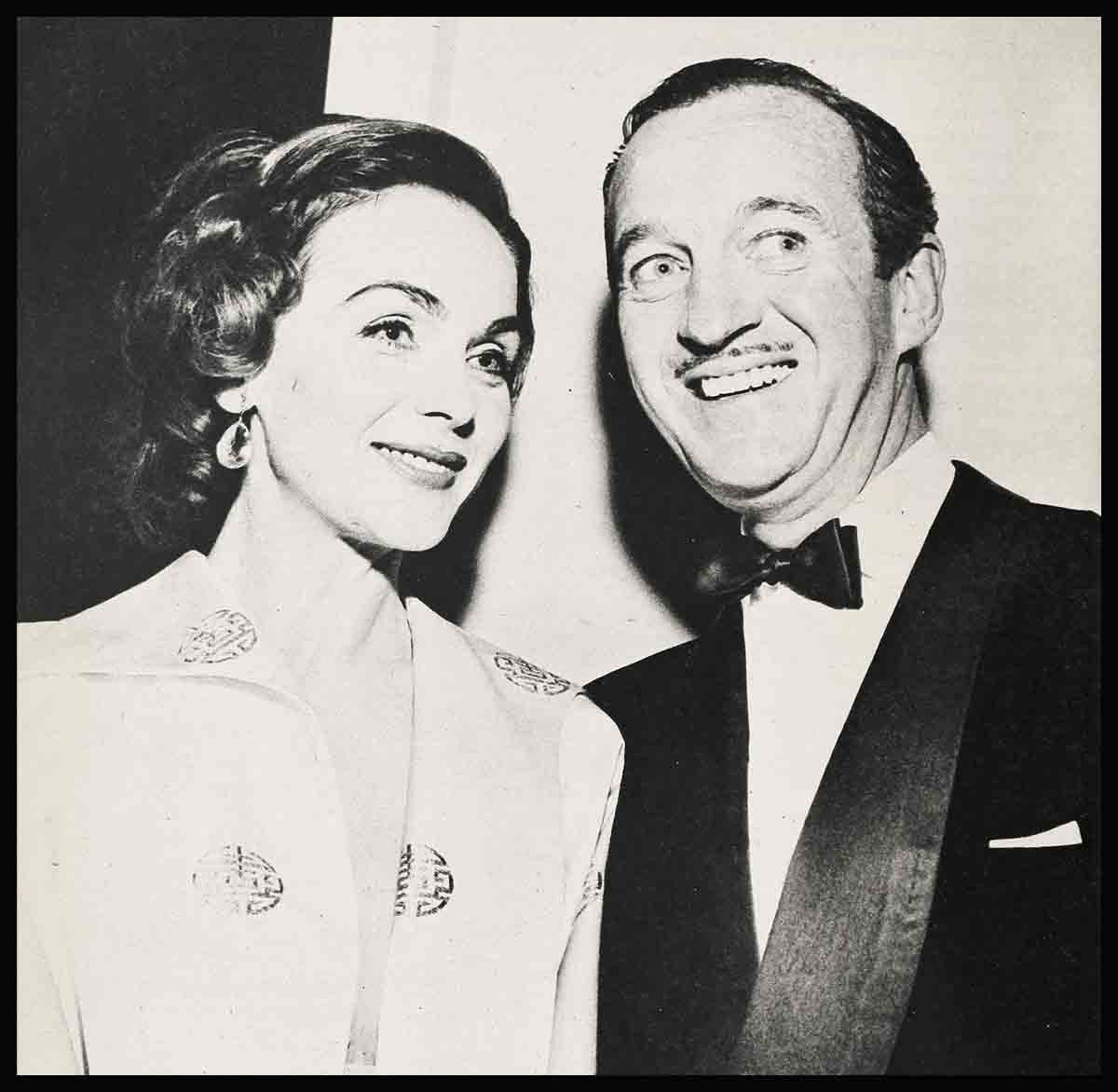
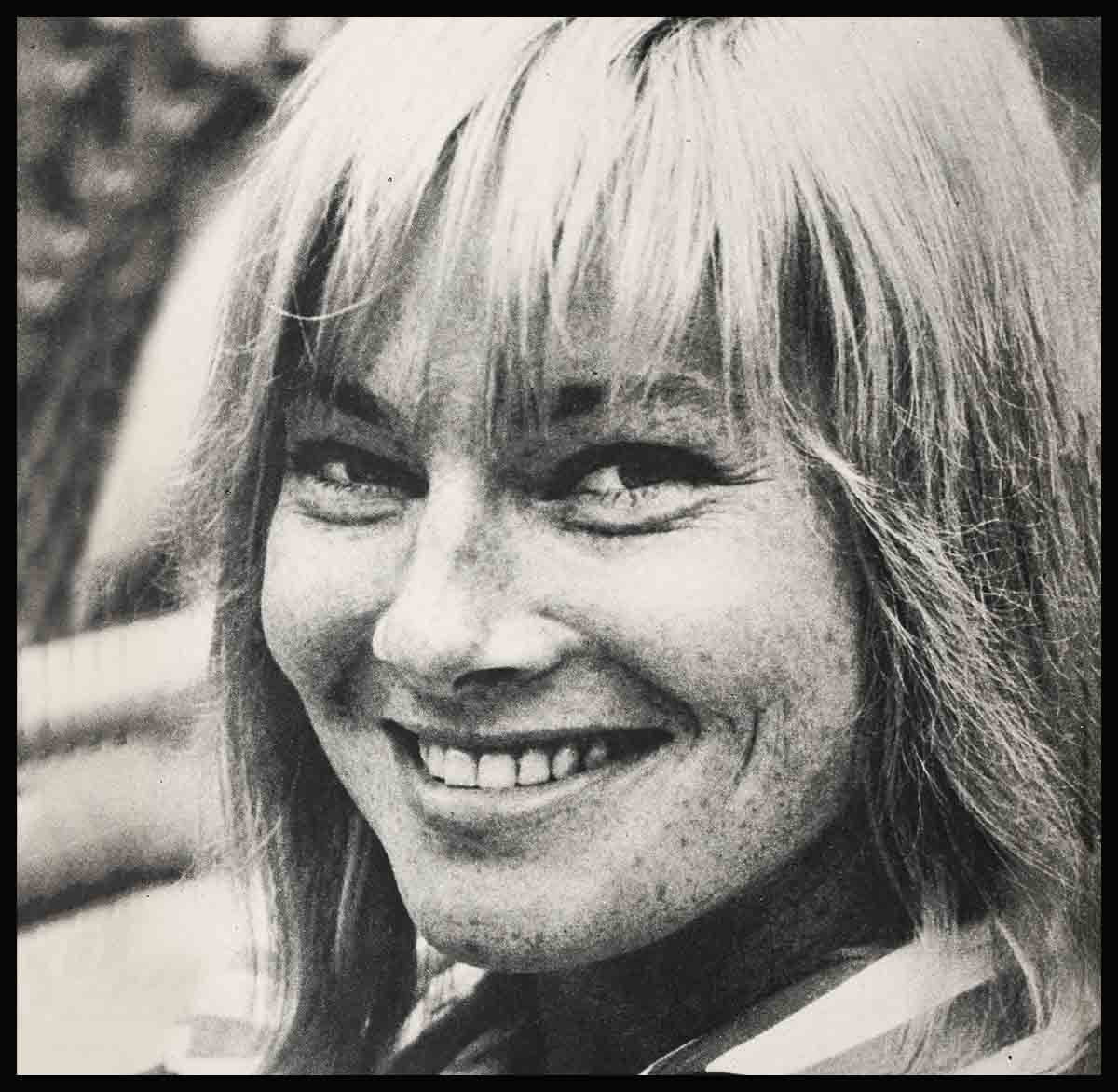
No Comments